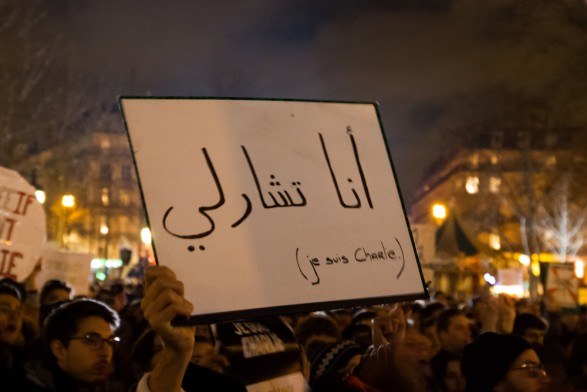 The Charlie Hebdo massacre in Paris and the release of additional inmates from the Guantanamo prison have both raised questions about what are the most effective ways to protect against terrorism--particularly in coping with transnational networks that take advantage of the technologies of globalization to recruit members and conduct operations. This is further complicated by concerns about the erosion of privacy rights and the ongoing tension between taking measures to secure the state versus guaranteeing the autonomy of citizens.
The Charlie Hebdo massacre in Paris and the release of additional inmates from the Guantanamo prison have both raised questions about what are the most effective ways to protect against terrorism--particularly in coping with transnational networks that take advantage of the technologies of globalization to recruit members and conduct operations. This is further complicated by concerns about the erosion of privacy rights and the ongoing tension between taking measures to secure the state versus guaranteeing the autonomy of citizens.
No doubt these issues will be discussed at the February 2015 Washington summit on strategies for combating violent extremism. Perhaps at that conclave two tools that were in used in "pre-modern" Europe ought to be assessed for their relevance to the 21st century.
The first is the concept of parole: of releasing those taken in battle in return for a pledge never to take up arms against that sovereign again. Parole developed because of the complications in holding large numbers of captives for an indefinite period of time (an issue has again surfaced as Gitmo remains open fourteen years after the 9/11 attacks, with no clear end to its mandate in sight). The bargain, of course, was that a person who was paroled, but then again captured in battle would face summary justice with no right of appeal. Given the concerns about recidivism (estimates of between 15 to 30 percent of previously-released detainees return to the fight the United States and its allies), reinstituting parole as a condition for release--with the understanding that recapture would lead to execution or lifetime imprisonment--might help to break the logjam between the undesirability of holding people in perpetual detention with no resolution of their case and the risk that those released will return to terror activities.
Second is the principle that a citizen who leaves to engage in combat activities somewhere else forfeits their rights and privileges of citizenship, or at least has them suspended and must apply to have them reinstated. One of the perennial security problems today involves recruits leaving Western states to fight in places like Syria, Iraq, Yemen, or Somalia, pledging allegiance to, and taking orders from, local combat organizations. Then, upon their return, these recruits wish to again cloak themselves with the protection of the rights of citizens of, say, the French Republic, particularly the ability to freely travel across Europe (or to the United States).
Perhaps revisiting policies such that were codified in Swiss law in the 19th century--forbidding Swiss citizens from being recruited or taking service in the armed forces of a foreign entity--might be useful. Some may object, claiming that such provisions may be employed negatively, like when it was used against the idealists who served the Spanish Republic in its struggle against the Fascists; but the problem is this perennial one: that "one man's freedom fighter is another man's terrorist," as when U.S. citizens or entities have sought to provide succour to Chechen or Uighur separatists over the objections of the Russian or Chinese governments. It may be simpler to enact such legislation first, then, as these volunteers return, permit them to offer their justifications to a tribunal as they seek reinstatement. Moreover, such provisions might make it easier to deal with the threat posed by "returnees" from combat in the Middle East.
None of these ideas are fully developed, and they may prove to be unworkable. This is why I offer them more as a starting point for discussion rather than as a final plan.
